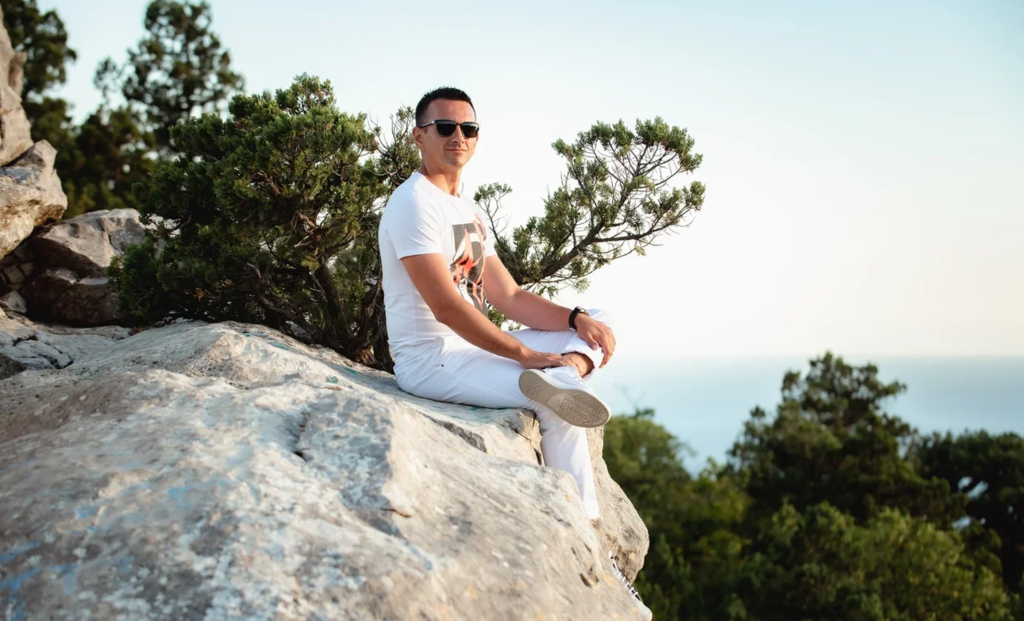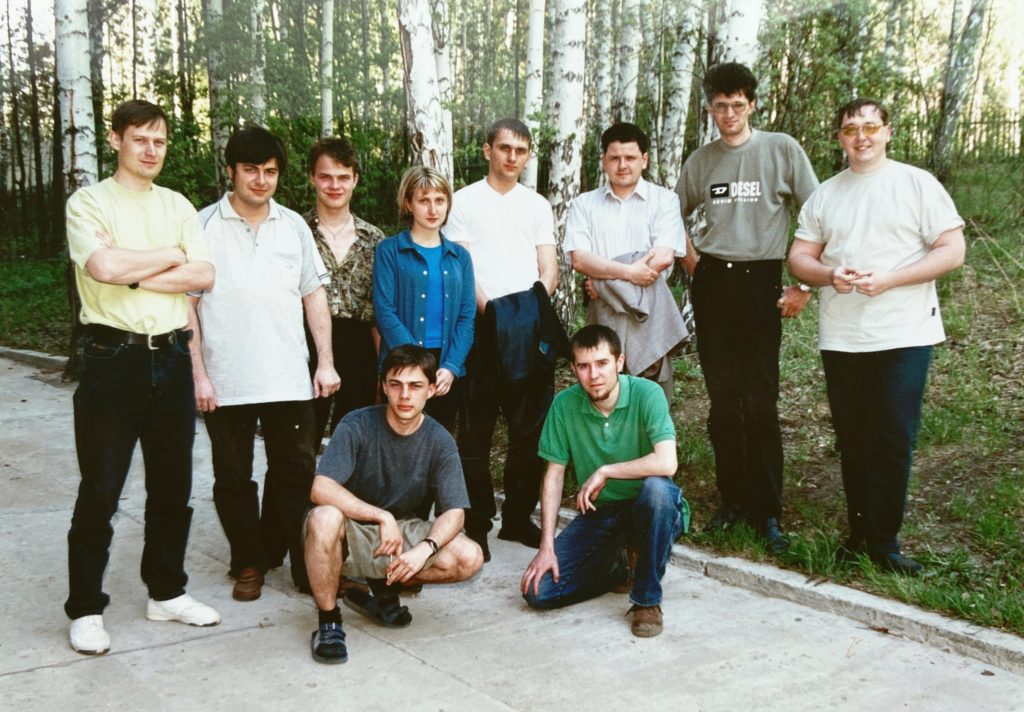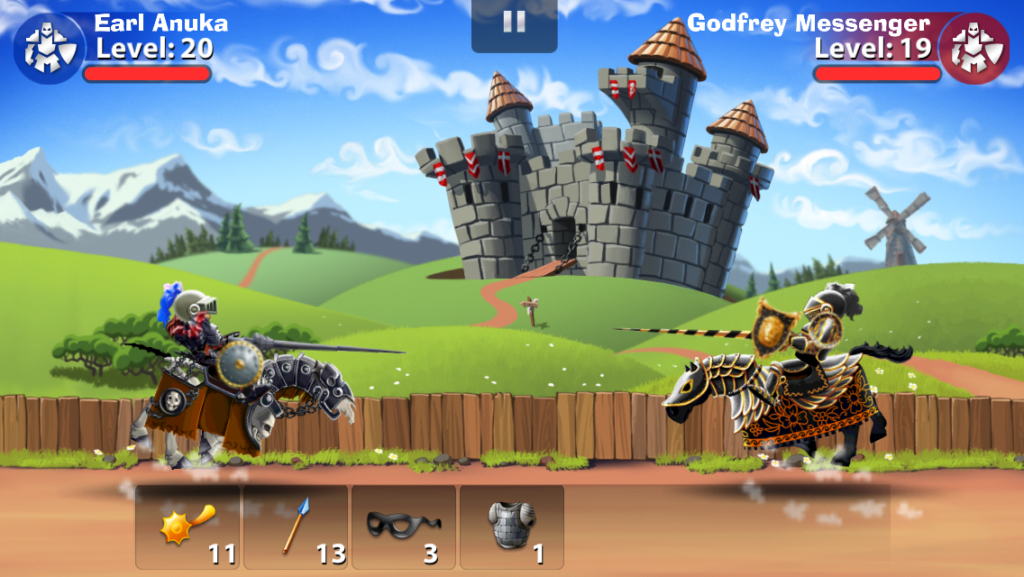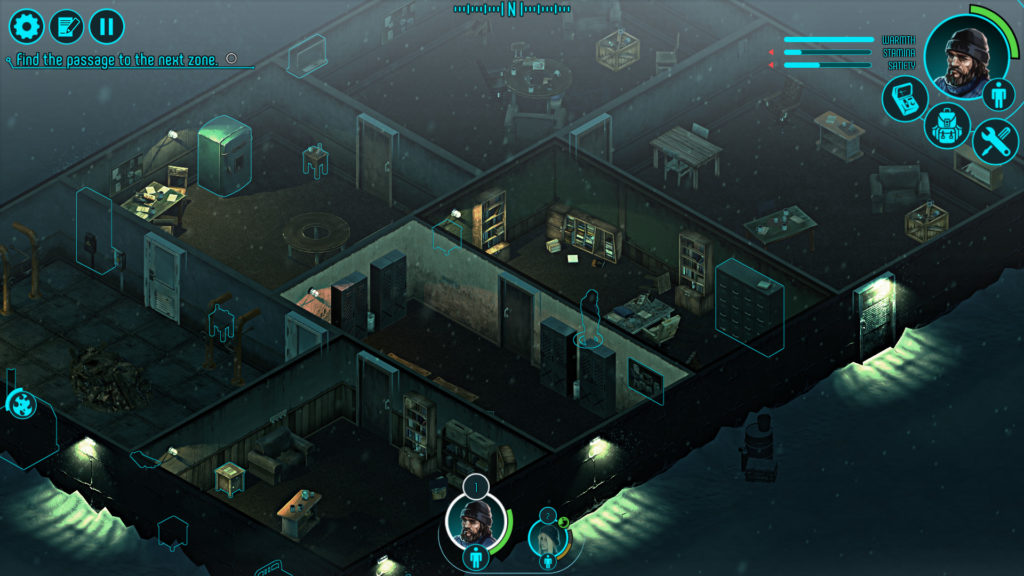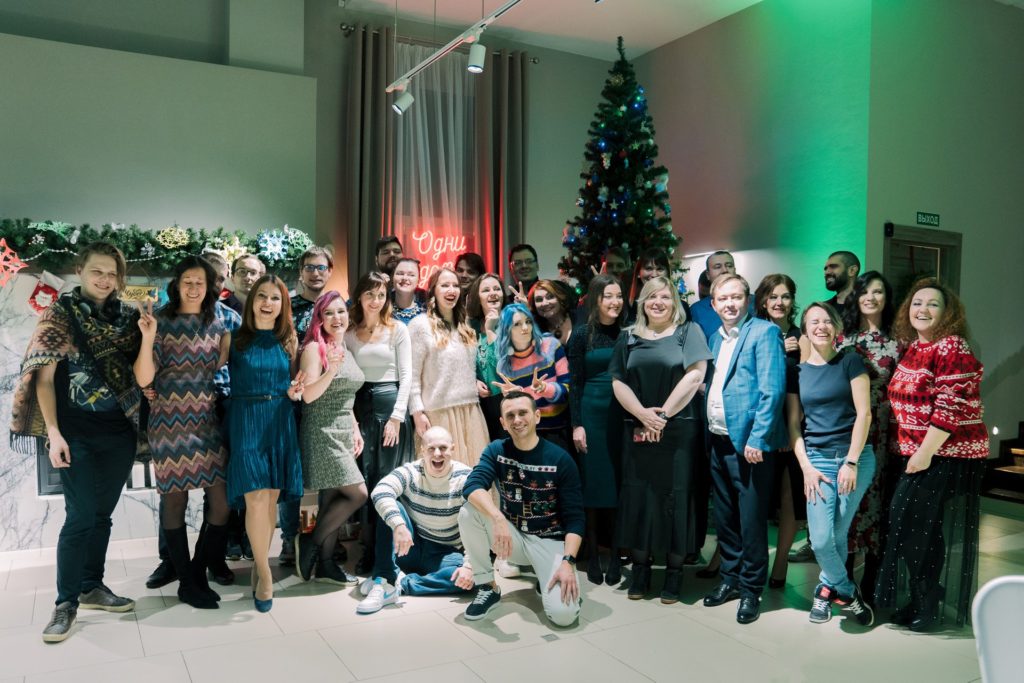In December 2019, Alawar was headed by its co-founder Sergey Zanin. We talked with him about the early years of the company, about how it grew. They also touched upon the challenges that Alawar faced, discussed the situation around Stargaze and plans for the future.
Sergey Zanin
App2Top.ru : Tell me a little about yourself. How did I get into the industry, where did I start?
Sergey Zanin: In my school years, computer games were exotic – access to technology was very limited. However, it was possible to play text games in the school terminal classroom and a little later occasionally in Wolfenstein 3D on a PC at a scientific institute – the benefit of the whole family from science. At the same time, I got acquainted with the prototype of a modern browser – NCSA.
In high school, I got a Spectrum 48K with cassette downloads. Yes, then you had to be an enthusiast just to play.
There were the same enthusiasts around me, and by the end of school it became clear that we wanted to make games ourselves.
And how did Alawar come about, where did everything start?
Sergei: Immediately after entering the university, we began developing our “Civilization” (why bother with trifles). Just at this time, the active penetration of the Internet in the United States began. It became obvious to us then that this was a new global reality.
And by the end of the university, we had a puzzle – we need to make small games (taking into account the bandwidth of Internet channels at that time) and use the Internet as a means of delivery. By that time – 1998 – processing services and the first stores had already appeared in the USA.
At the same time, we were introduced to the guys who invested in three of our projects. None of them took off, but we gained invaluable experience and formed our first combat team.
These were not classic investments – rather, a kind of crowdfunding of two people.
On April 8, 1999, we registered the company, rented an office space of 25 square meters in the basement of a residential building in Akademgorodok and continued to work. So another game appeared, which we actively distributed for six months mainly in the American segment of the Internet – we filled it into catalogs, wrote to reviewers, etc.
Six months – and all in vain.
I remember then every day I ate boiled potatoes and “soup” for dinner (half a cube of “Maggi” and water).
The proceeds were only enough to pay for the office, the Internet and buy a bus pass. We decided that if everything continues like this, then on November 7, 1999 – the “red day of the calendar” – we will close the company.
At that time, people around me said – find yourself a normal job.
For me, it was quite a serious pressure – after all, I graduated from the economics department of NSU, my fellow students are already working in serious companies, and I am “doing some toys”.
And it was on November 7 that we had a jump in sales. In November, we earned twice as much as usual – $300 versus $150. From that moment the history of the company as a business began.
Alawar team in 2000
How did you choose the name?
Sergei: It was the idea of Sasha Lyskovsky (one of the co—founders of Alawar, until 2015 he was president and a member of the board of directors of the company, after that he went into health-related IT – founded startups Welltory and iFarm. — Ed.). He found a similar word in some fantasy book, it meant “city of elves”.
We liked the name – it’s a good allusion to the fictional world of games. In addition, the word is non-standard, it is easy to protect it with copyright, plus it starts with the letter “A”, which means that we will be in top positions in catalogs.
What was Alawar like in the early years?
Sergei: Of course, we were looking for ourselves. We started with self-publishing, but after about a year we released the first third-party game. My university friends introduced us to its developers.
In 2001-2003, we conducted a game project HopGo (online racing) for the Dovgan company. At some point, we realized that custom development is not ours at all.
In 2003, we began to seriously develop sales in Russia. It took several years. The case was complicated by the lack of developed payment systems. It was only in 2006 that it became possible to receive payment for copies of games via SMS.
At the same time, they began to form a partner showcase system – it still works now.
Almost simultaneously with the official registration of the company, we began to take an active part in the development of the Eastern European Russian-speaking game dev community. We were event organizers, experts and speakers, actively got acquainted with new players, helped with tips, cases, resources.
Even then we clearly understood our responsibility to the market and people – our advantage was that we were the first to seriously engage in casual games and their online publishing in Russia. And the competencies obtained earlier than others were supposed to serve the development of our entire segment.
We visited a foreign event for the first time in 2002. Then I presented the games at a conference in Cannes – we were the only Russian casuals there.
In parallel with this, of course, the team was actively recruited. Some of the first team is still working.
We worked very closely with third-party studios. We actively went to visit each other, rested together, introduced our product, financial, as well as HR and PR standards into the teams.
Alawar office in 2002
Let’s make a little digression here. Alawar was launched in 1999. You actively run a gaming business, and then, in 2007, you launch another one — GBN. What kind of company is this?
Sergei: GBN was created as a banner exchange network for gaming sites in 2001. The exchange was free, we took a commission for using the service by displaying banners.
At first, the service was used by shareware-themed sites – shareware casual downloadable PC games. Then the network switched to working with Flash portals, developed Flash games itself, and since 2015 has been developing mobile game content, which can be attributed to a segment close to hyper-casual.
The fundamentally important thing in this story for me has always been that GBN and Alawar work in different segments.
Do I understand correctly that since the launch of GBN as a company, you have moved away from the operational management of Alawar?
Sergei: Not really. Until 2015, I did not leave Alawar anywhere and was promptly present in the life of both companies.
In 2015, we radically changed the Alawar paradigm and focused on midcore projects. My competencies were not required by the company at that time, so I completely engaged in GBN management.
It was then that I had more time on GBN, its new and biggest – mobile – chapter began.
At the same time, the work on the board of directors of Alawar has not gone away.
Why did GBN get involved separately from Alawar, but decided not to merge the companies?
Sergei: Different markets, different products, different technical processes. They have only one business philosophy in common – the team as the main value, respect for partners, transparency and honesty, information openness, constant improvement of competencies, search for related segments and experiments with new ideas, common sense and fairness.
It sounds like political slogans – but these are the values with which we built Alawar and GBN, and we firmly adhere to them now.
So it would be theoretically possible to merge companies – very often it is the conflict of corporate cultures that prevents mergers, but there is no such problem here. But there would be no commercial synergy in this.
GBN in the Russian game development occupied one of the leading positions in the segment of games that today can be called hyper-casual. We had built—up processes, a large team of 120 people, a serious funnel of projects — we developed about 100 games a month. And all this could be scaled 10 times exactly.
Then the sites began to change the content content of the stores, change the mechanisms for issuing similar games (minus 30% of revenue) and so on – directly or indirectly making it clear that our segment does not suit them. A quiet revolution happened on the global market, developers tried to complain, to sort it out – but alas. Most of these companies – of those I know – have been closed.
GBN also faced this problem and entered the turbulence zone – new projects stopped flying, organics became catastrophically scarce, and paid traffic did not pay off.
I had to go all in – several fundamentally new projects were launched. But none of them flew.
Let’s go back to the history of Alawar. Initially, she was a casual game development company, then she started publishing, a system of partner storefronts, which became more and more. Is that right?
Sergei:Yes. We started with the development of our own games, then increased the publishing direction and simultaneously developed a partner network – on our own and third-party sites.
As part of the development of publishing houses, of course, they increased the capacity of their own and partner studios – the more projects, the more people and efforts need to be invested.
As far as I remember, everything was going very well?
Sergei: Yes. At one time we formed the market and spent a lot of effort on building the principles inside and outside the company that we believe should be at the core: openness, honesty, interaction.
The consequence of this was the maximum recognition and trust of the studios choosing us. Everyone they managed to reach (and not just those who were already in close contact with us) was helped with development, expertise, finances and shared our best practices.
Part of the Alawar team in 2012
I believe that our efforts were not in vain. Today, the market has formed a good one. The participants are very strong, many have reached the global tops. And they all grew up before our eyes, we helped many.
We are worried about everyone and are very happy about the success of the teams. Although it was not easy for us, as market pioneers. Sometimes we even thought that if we had known in advance what the difficulties would be, then maybe we wouldn’t have started.
In January, I attended the White Nights Conference – it feels like there are so many of our former employees and companies founded by them, and our long–time partners, almost in the office of Alawar.
One of our former tops told me that he reads all the books on the history of game dev, and if there is no mention of Alawar, the book goes to the trash.
In the noughties, you were very noticeable on the casual games market in Russia, but at the same time, Alawar did not aggressively move towards social platforms at the end of the decade. Why?
Sergei: In 2009, we moved towards social platforms, but we did it in a very peculiar way. We chose a strategic partner who promised us mountains of gold. Unfortunately, the projects did not even reach the release.
Nevertheless, this does not mean that the topic is closed for us forever, we are seriously exploring the possibilities of making a second approach.
At the same time, you started very successfully on mobile. In 2009, you released about 10 games, and in 2010 — early 2011, you shot a hit line: “Treasures of Montezuma 3”, “Farm Frenzy” and Shake Spears!. Can we say that it was the best time for Alawar?
Sergei: 2012 was indeed the most successful year for the company, the peak of its development, but still thanks to the then traditional PC market.
Shake Spears!
But then something went wrong. After 2012, the company started releasing very controversial titles. At the same time, you were one of the first among domestic companies to start working with Asian companies within mobile (you entered into a partnership with Com2uS in 2013, then re-released your hit Shake Spears with LINE!), one of the first to start working together with messengers (the story with the same LINE and a little later with Tango). As if all the solutions were in the right direction, but as if something was missing. What exactly?
Sergei: The rake that developed companies are constantly stepping on is inertia and a sense of the irremovability of the market. Moreover, even multinational companies are guilty of this.
By that time, several years had passed since the release of the first iPhone, the mobile market was growing by a million devices a day. And it was quite obvious that the future lay in the mobile fritupley. It was this bundle that already generated exorbitant amounts, without requiring exorbitant quality of content. It was clear that it was necessary to reorient to the mobile frituplay here and now.
Nevertheless, there was no consensus in the company on this issue – the conservative position was strong. While the company was arguing about this, a golden time was lost.
After that, the “fast second” strategy was adopted. But we did not take into account the speed of changes in modern markets. They were faster than us.
We lost another couple of years due to unsuccessful personnel decisions in the mobile direction. The ports of our casual games on iOS and Android went well, but it was absolutely not the cream that could be removed then.
The following story can be added to the piggy bank of the key mistakes of this period: we rushed into mechanics with whom we had not worked before, instead of methodically polishing one or two of our top products.
Well, another strategic mistake is approaches to working with traffic. Without going into details, a lot of firewood was also broken there.
There were no notable grosses in Asia either.
I answer as openly as possible so that market participants who are in a transitive state can reflect on possible similar rakes at home.
Moreover, as far as I remember, the company was actively trying to change. For example, in 2013 Sergey Orlovsky joined the Board of Directors. How much did his appearance, by the way, then greatly affect the strategy?
Sergei: In 2003, we registered the company in the USA and thus switched to American corporate law.
At the same time, the first board of directors was formed. I think we were the first in Russian game development with such a structure.
In different periods, the board included: Alexander Katalov (President of Elcomsoft, specializing in information security and digital forensics), Alexey Basov (former top manager of Begin, FINAM, Mail.Ru Group and Rostelecom), Alexander Galitsky (founder of the Almaz Capital Partners venture fund and a member of the Skolkovo Board of Directors), Sergey Belousov (founder of Runa Capital), Lyubov Simonova (former top manager of Finam, now at Rostelecom), Sergey Ryzhikov (CEO of 1C-Bitrix), Sergey Orlovsky (CEO and founder of Nival, now also heads the Cyprus Helio Games. — Editor’s note). All of them and each one individually, of course, made a very important contribution to the formation and development of the company. Without them, Alawar would definitely be different.
It is difficult to overestimate the importance of a competent interlocutor – I like the analogy of Yitzhak Adizes, who says that you can see far beyond the horizon, but you do not see the stone under your feet. There must be someone who will see this stone.
We are sincerely grateful to all our directors for their position and perseverance – after all, we have not always heard, and this is another standard pain of the head: to find a balance between his own position, dedication and the opinion of others.
And then something went wrong in mobile. The market of classic casual games began to die and against this background, Alawar decided to make games for Steam by the middle of the tenth. How did they come to this?
Sergei: After a series of failures with mobile frituplay, it became clear that a paradigm shift was needed.
Andrey Postnikov (then CEO of Alawar) was a leader and a figure of trust in that part of the team that was the bearer of the ideology of “paid midcore + Steam».
The shareholders decided to provide the guys with a space to implement this direction, to exclude overprotection on our part.
Of course, the casual direction and other departments of the company continued their work and development.
Beholder turned out to be the first Steam swallow. When I talked about this with Andrey Postnikov three years ago, he said that it was more of an experiment. Why did you decide on this experiment?
Sergei: Yes, Beholder was kind of an experiment. But we were ready for it: we calculated everything as much as possible, formed a strong team.
The idea of the game came from Deploy Alawar employee Lera Hong. The producers, led by Zhenya Sister, picked up and creatively rethought the idea, came up with a setting, game mechanics and heroes. A huge part of the work fell on the game designers of Stargaze — Ksyusha Zheyda and others.
Beholder
The development team was small, so there was no rigid separation of roles. The graphic concept of the game was developed by our partners, Novosibirsk studio Deus Craft. The PM of the project was Zhenya Seryshev, the promotion was handled by the marketing department of Alawar, which was headed by Zhenya Kapustin.
We didn’t have 100% confidence in the experiment, but everything worked out, the project fired.
By the way, at one time it was the same with the “Merry Farm”.
Beholder was a household name at the time. Can you tell me how much he earned approximately?
Sergei: I can’t name specific figures, but I will say this: we didn’t expect the game to take off like that. Beholder has been translated into 14 languages and sold 2.3 million copies in 100 countries around the world.
At the time of Beholder’s launch, one studio was engaged in games for Steam — Barnaul Stargaze. Do I understand correctly? And how many studios did the company have then?
Sergei: No, it was different. For midcore projects, we had an internal development slot, Cheerdealers studio and two external studios in Barnaul — Alawar Stargaze and Warm Lamp Games. We had about five studios for casual games.
From the outside, it seemed that Alawar could expect a new peak, a new major success. It’s not just the Beholder, but also the warmly welcomed I am not a Monster. How did the company begin to look at the new direction?
Sergei: We have been discussing this vector of development since 2014 — it was the opening of new horizons, a new market, a larger-scale development. Therefore, when they decided to make Beholder, they were already fully mentally prepared, inspired and followed the progress.
Beholder has become our main successful case. That’s why two years after the release, we released a sequel to the game — Beholder 2.
By the way, before the game I’m not a Monster, we released the polar survival Distrust, about which the players respond extremely positively.
Alawar after Beholder’s success started looking for new studios or invested more in Stargaze?
Sergei: If we talk about midcore projects, then we expanded the Barnaul slot Alawar Stargaze. They conducted two projects in parallel.
External developers were searched for when there was time.
We have been working with external studios on casual projects for many years: GameMixer, Yustas Games, GameOn Production, Adept Studio GD and others.
Since 2018, we have started actively developing the publishing direction again: we are looking for new teams, there are already several midcore and casual projects in the works. One of them is a detective adventure game that we are doing together with the Moscow studio Wooden Monkeys.
Alawar in 2018
A year after the warmly-received release of Beholder 2, it suddenly turns out that Stargaze is almost completely under the wing of Playrix and becomes Playrix Zefir. I remember that part of Alawar’s top management was shocked at the time. What happened and why?
Sergei: The shareholders found out about this from messages in some Telegram channel. After that, the whole company’s review procedure began.
I also went to Stargaze – we discussed everything in detail with the head of the studio.
It turned out that not everything was smooth in our relationship, we had accumulated complaints.
These claims were quite solvable, but the studio had already made a decision at that time.
We, like everyone else, wish the guys development! Look only ahead, perhaps we will meet there again.
All of us working in game dev are romantics and a bit of magicians. We know how to dream, we know how to make our dreams come true. We know exactly the price of the result. We know for sure that the higher the dream, the more difficult it is to realize it. That there is a lot of effort between a dream and its realization. And a little luck.
For example, every publisher dreams that suddenly an independent, experienced, well-coordinated team with relevant competencies and successful projects will appear on his doorstep. In full force. Just out of nowhere.
And at the same time, the publisher also has the opportunity to accept this team right now and put it in a randomly prepared historical office near their previous office.
Alawar knows for sure that all these dreams are worth considerable effort and resources. That such negotiations are not conducted for a month or even two – the whole story can stretch over a significant period, for example, from February to November. There is no other way. For example, only the right to include the Stargaze studio in the company cost Alawar quite a considerable amount, even by today’s standards. Not to mention our long-term partnership and friendship, which cannot be measured by material categories at all.
I believe that this story should be resolved by all participants of the triangle – we are ready for dialogue.
Against the background of this situation, have you returned to active operation of the company?
Sergei: It was a little more complicated. I spent a month in interviews with the guys, studied the processes in detail. As a result, it was decided to change the management team, including the CEO.
The shareholders offered me to take this position – it was unexpected, I took a break.
And then, like Gaidar: looked to the left – no one, looked to the right – no one. I had to make a difficult decision – both companies needed my 100% attention.
Since December 2019, I have been CEO of Alawar, and GBN has been left in limited support mode.
What did you change in the first place, besides the management team?
Sergei: The key tasks were to reformat the team and processes.
In some cases, those who were second in the department took their places, somewhere they strengthened the guys from GBN, somewhere they reorganized departments and recruited a team.
Much attention had to be paid to the formation of a unified information environment, the change of internal communication tools, and the culture of interaction between departments.
There were quite a lot of legacy things that either had not reached the hands before, or they remained due to habit. For example, we are now changing the affiliate program alawar.ru , financial accounting systems, etc.
We also have more opportunities to find and publish new external studios – first of all, those engaged in premium midcore.
What is Alawar company now: how many people and studios are it, where are they located?
Sergei: Today there are about 50 people in the staff. The internal development slot is located in Novosibirsk, as part of the company. There are also outsourced specialists and five external studios employing more than 80 people.
Alawar in 2020
What are Alawar’s strengths and what are its weaknesses at the moment?
Sergey: The main value of any organization is people.
We are lucky that our team is truly world–class professionals. We have a unique balance of experience and energy, wisdom and audacity.
Speaking of competencies, we are cool in casual and midcore directions.
Weaknesses — skills in social networks, mobile and fritupley. We are pumping these sides, experimenting in them, looking for reasonable approaches.
What are you planning to do next?
Sergey: We will continue to develop the publishing house and the development of midcore projects. And also strengthen their positions in the casual market. We really want to find partners for the development of our stellar TM in the mobile frituplay market.
I will say that we have always believed that partnership, openness and collaboration prevail over the trend of closeness and disunity.
We are always there, open to everyone. Do not hesitate to contact us for any questions.
Thanks for the interview!
Is there any news? Share it with us, write to press@app2top.ru

